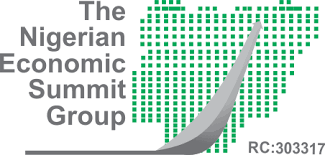
NESG, Others Call for Affordable Medical Services in Nigeria
The Nigerian Economic Summit Group (NESG) in cooperation with African Economic Research Consortium (AERC) and the Oxford Committee for Famine Relief (OXFAM) have urged the authorities to provide safe and affordable medical services for more Nigerians to access.
Speaking at the event in Abuja, Dr Ololade Adewole of the National Centre for Technology Management, Obafemi Awolowo University, Ile Ife, says the female gender required more health services than their male counterparts.
Adewole noted that a more significant percentage of unemployed and uneducated females required maternal health services than their male counterparts, even though males tend to have greater access to health services than the female gender.
Also Read: FG Aims to Generate N3.96tn revenue from oil, non-oil sectors Annually
She says certain factors such as low access to healthcare services, poverty, fear, lack of information, the distance from home to the healthcare facility and lack of transportation contributed to hindering people from accessing sexual reproductive health services during the lockdown.
“Mobile health clinics, public awareness programmes, adoption of telemedicine and home-based delivery healthcare, provision of social assistant products, creating special consideration to women and encouraging the use of social media platforms through the provision of subsidized data charges and internet-based counselling should be included in policies as a means of empowering people, especially women to close the gender gap in access to healthcare services”.
The dissemination workshop was held with support from the International Development Research Centre (IDRC) on Tuesday with the theme “Gender Differentials in Access to Medical Services During COVID-19 Lockdown: Insights from Nigeria.”
AERC undertook the research in Ethiopia, Nigeria, Kenya, South Africa, and Zambia and the workshop aimed at cascading the research findings in the Nigerian space to policymakers and key stakeholders to drive policy implementation in Nigeria.
The research manager, AERC, Ms Dianah Mukwate Ngui, in her opening remarks said that the project’s objectives were targeted at the socio-economic impact of the pandemic on gender to create gender-oriented, transformative and sensitive policies.
That the research aims to use analytical evidence to build the capacity of researchers and institutions, build a network of stakeholders and develop a body of evidence that will reinforce collaboration while identifying the various options that will ensure equitable and sustainable policies.
During the panel discussion, the commissioner for Health in Lagos State, Prof Akin Abayomi, revealed that the outreach programmes of the Lagos State government were oriented and targeted around populations encompassed in family health, maternal and child health, silent diseases, and dental and hearing impairments.
He noted that the majority of health cadence in Lagos were women, with the state medical workforce having more females in the qualified medical groups.
Ms Peggy Imoniovu, programme manager of Safecare, who represented the Nigerian country director, PharmAccess Foundation, Njide Ndili, said that initiatives such as the national cash transfer programme helped free up money for citizens and helped ease the amount of money spent on healthcare.
The founding partner health systems consult and facilitator health policy commission of the NESG, Dr Nkata Chuku, added that for policy design strategies to be successful, it is important to know who the services are being designed for, as well as demographics and prevalent ailments.
